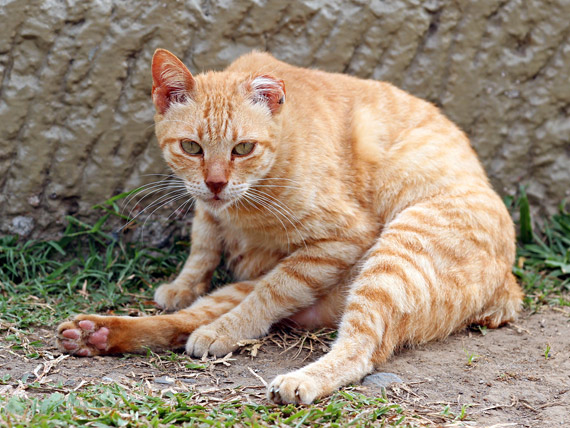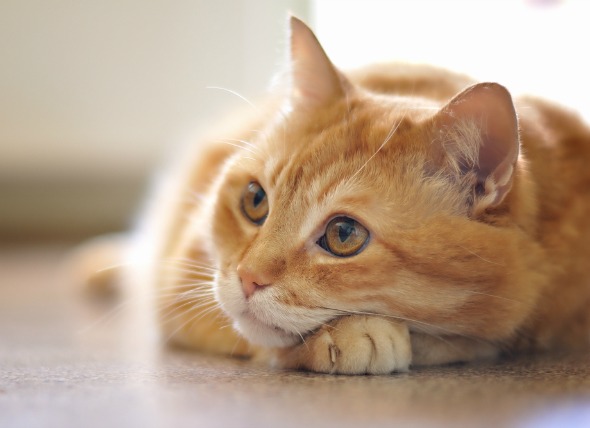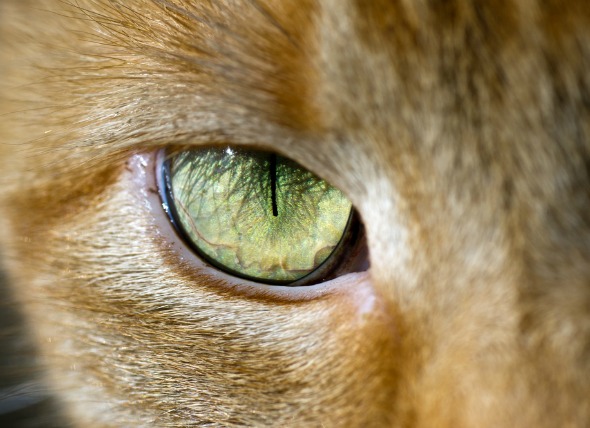
It is not uncommon for an animal to ingest a poison or toxic substance. If you have witnessed your cat ingesting a toxic substance or it is behaving abnormally, you should immediately take your cat to a veterinarian for treatment, as it may have poisoned itself.
If you find the substance that was ingested, bring this to the veterinarian for examination, along with any vomit samples. This will aid in the diagnosis and treatment plan.
To learn more about how this poison intoxication affects dogs, please visit this page in the PetMD health library.
Your cat may be experiencing unexplained vomiting, diarrhea, or may appear to be weak (lethargic) to the point of being unable to move.
Poison intoxication occurs when a cat ingests a foreign material, fluid or otherwise, that causes a physical reaction. If left untreated, it can be fatal.
Poisons and toxic substances come in many forms, and it is often difficult to give an exact diagnosis if the substance is not known and identified. If your veterinarian is unsure as to what was ingested, the cat's symptoms will be treated as they become obvious. When possible, a blood work-up will be ordered to determine the exact cause of the poisoning.
The goal of treatment is to neutralize the ingested substance to prevent further absorption into the cat's body, and to provide supportive measures to your pet. When possible, an antidote based upon what was ingested will be administered.
There are several treatment options to assist in the removal of the toxic substance and the rehabilitation of your cat, including supportive behavior to alleviate pain and control body temperature.
If your cat is unable to breathe, an emergency airway must be established quickly to prevent asphyxiation. If your pet’s heart has stopped, cardiopulmonary resuscitation (CPR) or massage of the heart (cardiac massage) may be required to regain a proper heartbeat.
The use of enemas and activated charcoal will help to prevent further absorption into the body, and external oils can be used to prevent absorption into the skin as the substance passes through the body.
Your veterinarian may also choose gastric lavage (internal washing). Using a tube passed into the stomach and filled with water to flush the cat's system, the substance will be washed directly from the stomach. Diuretic drugs will enhance the secretion of the substance through the urinary tract.
For serious conditions, filtering of the kidneys with a dialysis machine may be recommended to remove the substance from the cat's blood and kidneys.
You will need to observe your cat to track its progression. Following treatment, your veterinarian will continue to monitor your pet and determine whether its condition is improving or worsening. Fluid therapy will be recommended to keep your pet hydrated.
The best method of prevention is to keep all harmful substances out of your cat's reach in and around the home.
 Mange in Cats
Demodicosis, or Mange in Cats
Demodicosis, or dem
Mange in Cats
Demodicosis, or Mange in Cats
Demodicosis, or dem
 Intestinal Cancer (Adenocarcinoma) in Cats
Adenocarcinoma of the Stomach, Intestine, or Rectum in C
Intestinal Cancer (Adenocarcinoma) in Cats
Adenocarcinoma of the Stomach, Intestine, or Rectum in C
 Fungal Infection (Malassezia pachydermatis) of the Skin in Cats
Malassezia Dermatitis in Cats
Malassezia pachyder
Fungal Infection (Malassezia pachydermatis) of the Skin in Cats
Malassezia Dermatitis in Cats
Malassezia pachyder
 Glaucoma in Cats
Disease of the Optic Nerve in Cats
Glaucoma is a
Glaucoma in Cats
Disease of the Optic Nerve in Cats
Glaucoma is a
 Pediatric Behavior Problems in Cats
Behavioral Problems in Cats (or Kittens)
Pediatri
Pediatric Behavior Problems in Cats
Behavioral Problems in Cats (or Kittens)
Pediatri
Copyright © 2005-2016 Pet Information All Rights Reserved
Contact us: www162date@outlook.com